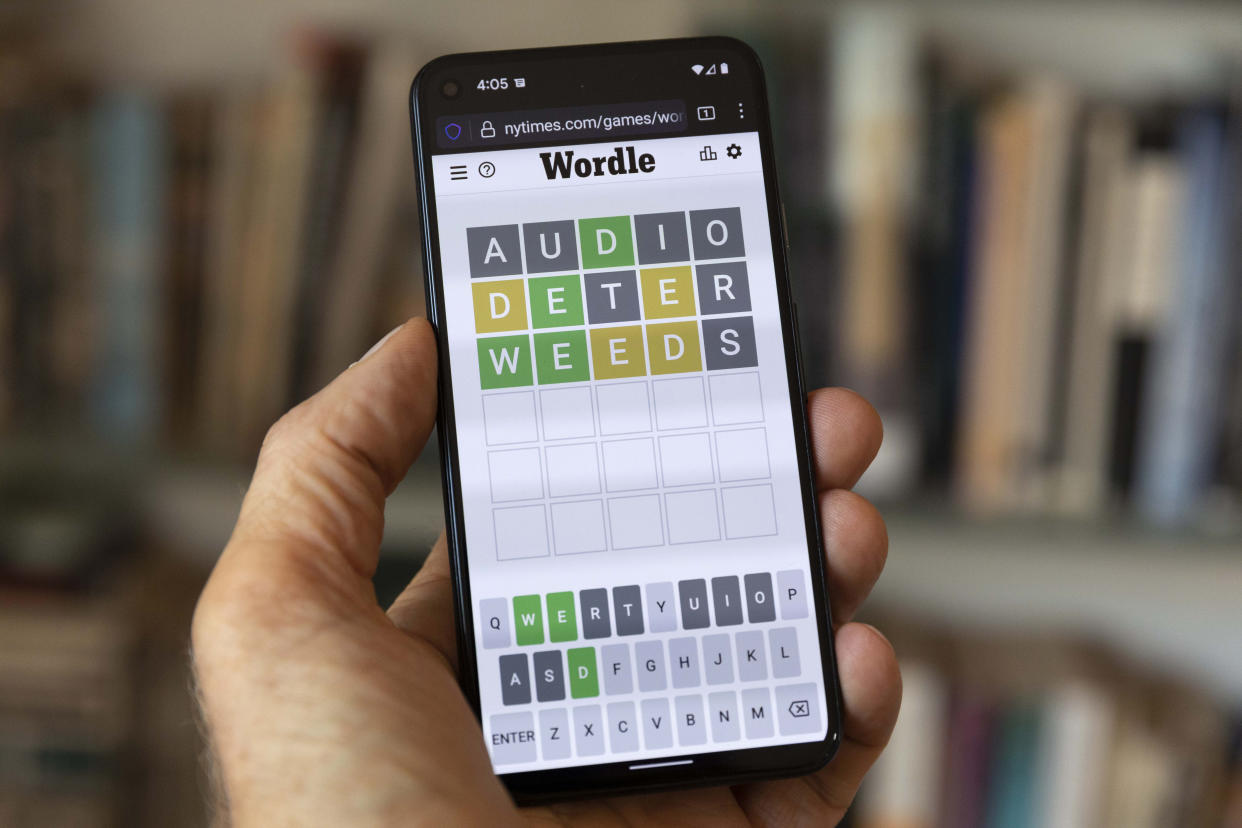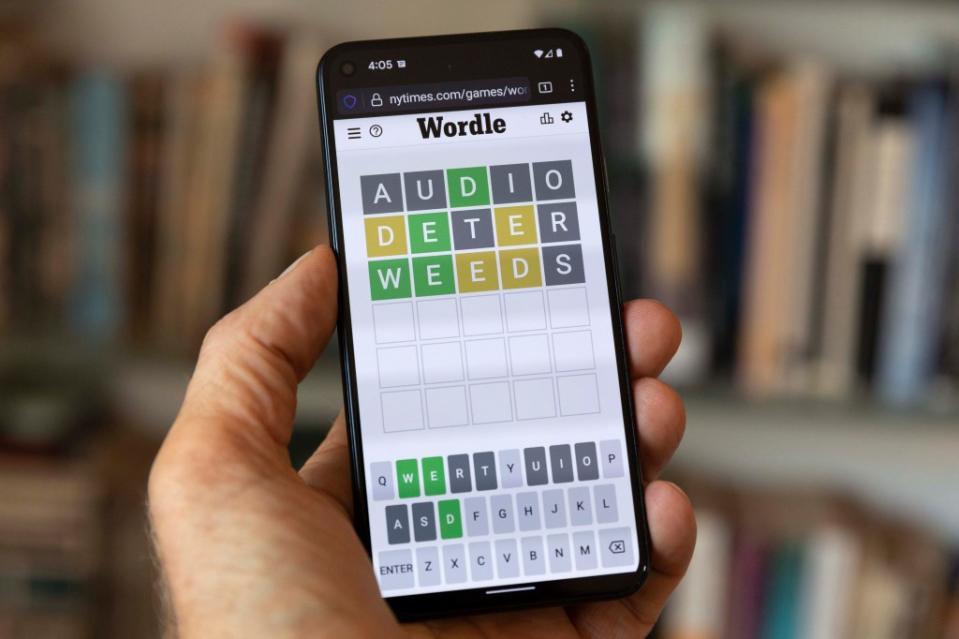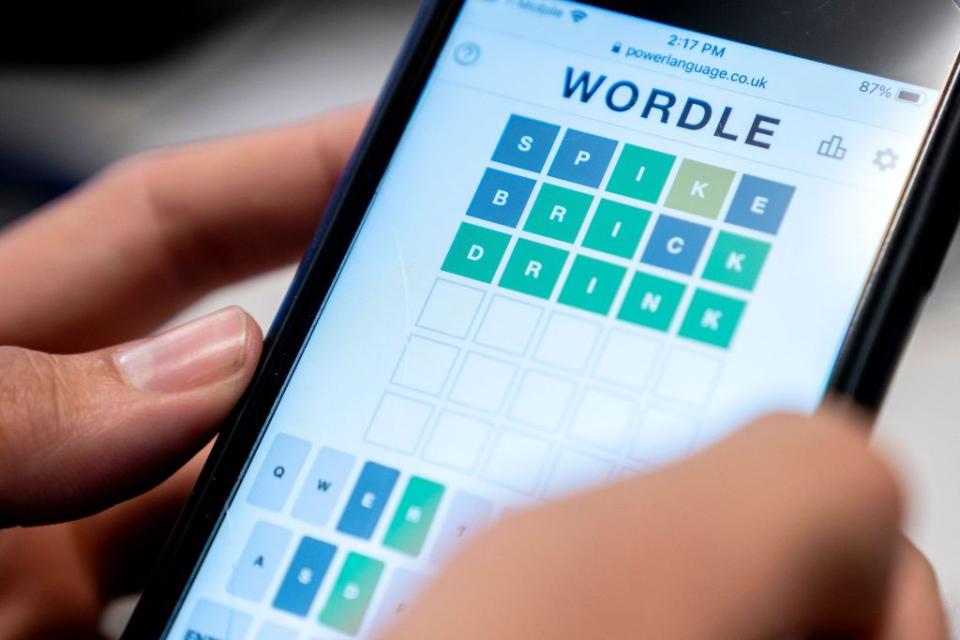Wordle driving you mad? Why the New York Times game is a problem for mental health, therapists say

Now this is a head-scratcher.
Wordle, the cognitively stimulating word game from the New York Times, is taking a toll on players’ mental well-being.
“My therapist just told me that the NYT word games app is becoming a problem for many of her patients, including me,” journalist Tess Owen wrote on X this week, admitting that she “lied” to her therapist about how long she spent playing the many games offered by the Times.
Mimicking her therapist, Owen continued, ‘”Uh huh, so to recap, you’re doing the sudoku, as well as the crossword, the spelling bee, wordle, connections and letter boxed every day, in just one hour?’ *writes in notebook*.”

The Times offers an array of word and number games, including but not limited to the Crossword, the Mini Crossword, Spelling Bee, Tiles, Strands and Connections, perhaps the most intellectually outrageous of the spread due to the outcry from players if it’s a little too hard on any given day.
The newspaper told the Daily Beast said that its games were played more than 8 billion times in 2023, and Wordle was the most popular by far — but at what cost?
Jennifer Gittleman, a psychologist in New York, says the word puzzle — which the Times bought from software engineer Josh Wardle in 2022 — has overtaken some of her patients’ lives, getting “in the way of regularly scheduled programming.”
“When I see it as a problem is when a patient says ‘I was not able to complete my tasks at work today because I spent so much time on Wordle’ or when they say they were asked to go to dinner with their friends but chose to stay home to play Connections,” she told the Daily Beast, adding that some patients are anxious when they don’t solve the puzzles or have enough time to complete them.

Other therapists tell the outlet that patients are riddled with anxiety that they will be judged by their friends for receiving a lower score or taking a longer time to complete the game.
“Wordle bragging” became a social media phenomenon when the sensational game first took off, as people boasted their scores on platforms like X to compare to their peers.
“People are thus looking for external validation or something from other people rather than looking for something within themselves perhaps,” psychologist Dr. Lauren Sweitzer told the Daily Beast. “On the flip side, it’s self-judgment when we feel like we sucked at something people are doing.”
The games, “based in wordplay and logic,” a spokesperson said, are not intended to drive people mad. Instead, they “create deliberate moments for sharing with friends and family.”
“We believe deeply this is a type of play that is healthy and brings people together,” The Times told the Daily Beast.

While cognitive puzzles like Wordle seem like they would boost cognition or intellect, experts previously told CNN that mastering Wordle doesn’t mean you’ll be good at anything else.
“Some people just enjoy puzzles,” University of Calgary psychology professor Penny Pexman told CNN. “And we know that a need for cognition is different than intelligence. So it’s not necessarily something you do because you’re smart, it’s something you do because that’s what you enjoy.”
The game differs from puzzles like crosswords, where the definitions and associations of words is needed to complete it; in Wordle, deductive reasoning is used to solve for missing letters and utilizes the frontal and prefrontal lobes, experts said.
While Wordle requires focus and visual memory, strategizing relieves the mental load associated with the game which could “lessen Wordle’s potential benefits,” Aaron Seitz, a psychology professor at the University of California, Riverside who is a memory and learning researcher, told CNN.
He recommends rotating the games you play whenever your brain doesn’t feel challenged to “exercise your brain in different ways.”
But if you just can’t quit Wordle, Gittleman advises setting a time limit so that the puzzle don’t “interfere with getting things done.”
“People just need to remember, it’s just a game,” she said.

